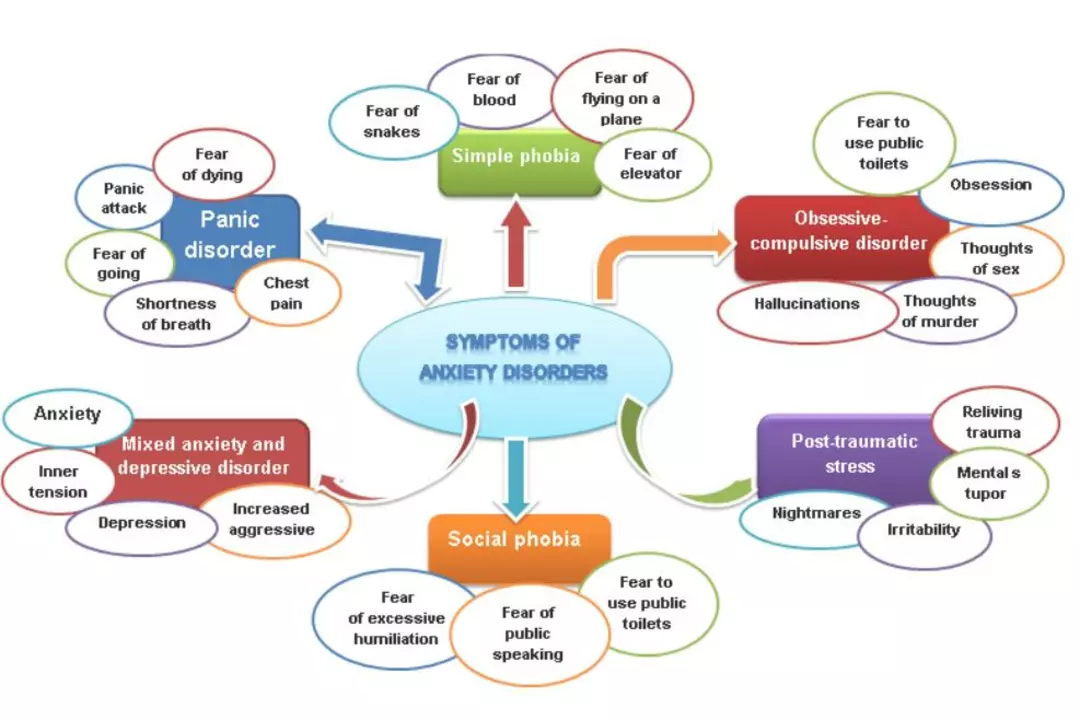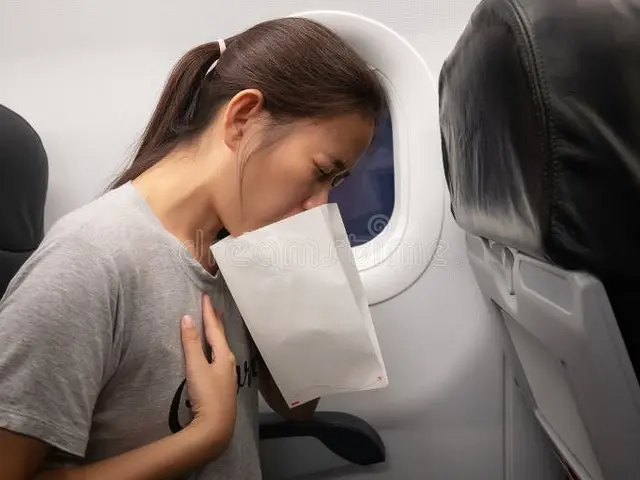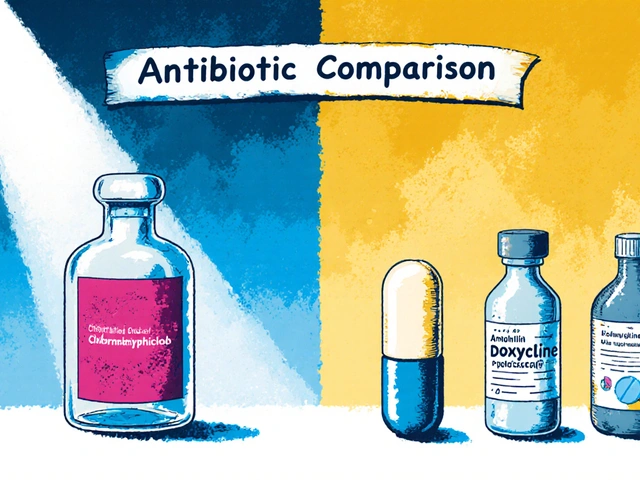Understanding Panic Disorder and Its Impact on Travel
Panic disorder is a type of anxiety disorder characterized by recurrent and unexpected panic attacks, which are intense periods of fear or discomfort. These attacks can be triggered by various factors, such as stress, unfamiliar situations, or even seemingly out of nowhere. Traveling, with its numerous unknowns and potential stressors, can be especially challenging for those with panic disorder. In this section, we will discuss the nature of panic disorder and explore how it can affect one's ability to travel comfortably and confidently.
People with panic disorder often experience symptoms such as rapid heartbeat, trembling, shortness of breath, and a feeling of impending doom during a panic attack. These symptoms can be incredibly distressing and can create a vicious cycle, as the fear of experiencing another attack can lead to increased anxiety and avoidance of certain situations. For those who love to travel or need to do so for work, this can be especially frustrating and limiting. However, with the right strategies and support, managing panic disorder while traveling is possible.
Preparation: Setting Yourself Up for Success
One of the most critical aspects of managing panic disorder while traveling is proper preparation. By taking the time to plan and organize your trip, you can significantly reduce the likelihood of experiencing panic attacks and increase your overall comfort level. This section will provide some tips and strategies for preparing yourself mentally and physically for your upcoming journey.
First and foremost, it's essential to consult with a mental health professional, such as a therapist or psychiatrist, about your travel plans. They can provide valuable guidance and help you develop a personalized plan for managing your panic disorder while away from home. Additionally, make sure to pack any necessary medications and keep them easily accessible during your travels. It may also be helpful to create a list of coping strategies that have worked for you in the past, such as deep breathing exercises or grounding techniques, and keep it handy throughout your trip.
Creating a Support System While Traveling
Having a strong support system in place is crucial for managing panic disorder while traveling. This can include friends, family members, and mental health professionals who are aware of your condition and can provide assistance, encouragement, and understanding. In this section, we will discuss how to create and maintain a support system while on the road.
Before your trip, consider discussing your travel plans and concerns with close friends and family. They can provide reassurance, advice, and even accompany you if possible. Additionally, make use of technology to stay connected with your support network while you're away. Regular phone calls, text messages, or video chats can help you feel more secure and grounded. It may also be helpful to research local mental health resources, such as therapists or support groups, in your destination, so you have options in case you need additional assistance while traveling.
Practicing Self-Care and Coping Strategies on the Road
Self-care and the consistent practice of coping strategies are crucial components of managing panic disorder while traveling. Ensuring that you're taking care of your physical, mental, and emotional well-being can go a long way in preventing panic attacks and reducing anxiety. In this section, we will discuss some self-care practices and coping techniques that can be particularly helpful while on the road.
Make sure to prioritize sleep, nutrition, and exercise during your trip, as these factors can significantly impact your overall mental health. Aim for at least 7-8 hours of sleep per night, eat balanced meals, and incorporate physical activity into your daily routine. Additionally, practice relaxation techniques such as mindfulness meditation, progressive muscle relaxation, or deep breathing exercises to help manage anxiety and stress. Finally, don't hesitate to take breaks and give yourself permission to step away from activities or situations that may trigger a panic attack. Remember, it's essential to prioritize your well-being while traveling.
Adapting to Challenges and Embracing Flexibility
Travel often comes with unexpected challenges and changes in plans, which can be particularly difficult for those with panic disorder. Learning to adapt and embrace flexibility can help you better manage your anxiety and reduce the likelihood of panic attacks. In this section, we will discuss some strategies for cultivating adaptability and resilience while traveling.
When faced with unexpected challenges or changes in plans, remind yourself that it's normal for things to not always go as planned, and try to view these situations as opportunities for growth and learning. Rather than focusing on what's going wrong, shift your perspective to what you can do to make the best of the situation. Practice problem-solving skills and develop a "plan B" mentality, which can help you feel more in control and less anxious. Additionally, remind yourself of your past successes in managing panic disorder and your ability to cope with challenging situations. Remember, you are capable of handling whatever obstacles may come your way during your travels.








14 comments
Andrea Swick
I used to avoid flying at all costs until I started carrying a small stone in my pocket. Just holding it during takeoff? Game changer. Doesn't solve everything, but it anchors me. I wish I'd known this sooner.
Joe Puleo
This is solid advice. Seriously, the prep stuff works. I always pack my meds in a little ziplock with a note that says 'anxiety meds - not drugs' so TSA doesn't give me side-eye. And breathing? 4-7-8 every single time. Works like magic.
Ben Jackson
The support system piece is everything. I texted my therapist from a train in Prague when I felt it coming on-she replied within 3 minutes with a grounding script. I cried. Then I bought a pastry. Life is better with pastry and professional help.
Bhanu pratap
I traveled to 12 countries last year with panic disorder and not one meltdown. How? I stopped fighting it. Let the wave come. Ride it. Don't resist. Your body isn't your enemy-it's just overworked. Treat it like a tired puppy. With snacks.
Meredith Poley
Wow. So you're telling me the solution to panic attacks is... breathing? And sleep? And not skipping meals? I'm shocked. I thought it was something more complicated, like teleporting to a parallel universe where anxiety doesn't exist.
Keith Bloom
This is just coddling. Everyone has anxiety. You think your panic attack is special because you're on a plane? Newsflash: the pilot's probably having one too, but he's got a license and a job to do. Stop making it a lifestyle brand.
Mathias Matengu Mabuta
I must respectfully object to the notion that 'flexibility' is a virtue in the context of neurobiological dysregulation. The premise assumes a Cartesian dualism between mind and body that is not empirically supported. Panic disorder is not a failure of adaptability-it is a systemic response to perceived environmental threat vectors that have been misconfigured due to epigenetic and sociocultural conditioning.
Ikenga Uzoamaka
I don't know why people make this so hard... just pray!! I had panic on a bus in Lagos, I shouted 'Jesus!' and the whole bus started clapping! Now I travel everywhere with a Bible and a loud voice. God is real!!
Amelia Wigton
The DSM-5-TR, in its most recent iteration (2022), categorizes panic disorder under 300.01 (F41.0), which, according to the ICD-11, is now aligned with the ICD-11 coding structure, though the ICD-11 has introduced a dimensional approach to anxiety severity, which the DSM-5-TR has not yet adopted-this creates a diagnostic discordance that may affect treatment generalizability across international clinical settings, particularly in low-resource environments where translation of CBT protocols is inconsistent due to linguistic and cultural variance in somatic symptom expression.
Lee Lee
They don't want you to know this, but panic attacks are a government mind-control test. The 'breathing exercises' they recommend? That's just to make you breathe in the chemtrails slower. The real solution is grounding yourself with copper wire and aluminum foil hats. I've been doing it for 12 years. My panic? Gone. My neighbors? Concerned.
John Greenfield
You're all missing the point. This isn't about panic. It's about control. The system wants you to feel powerless so you'll keep buying meds, therapy apps, and 'grounding stones.' The real cure? Stop traveling. Stay home. Don't give the airlines or hotels your money. Fight the machine.
Dr. Alistair D.B. Cook
I've been traveling with panic disorder since '09, and I can confirm: the only thing that works is a 100% no-fly policy. I took a train from NY to LA. 4 days. 3 breakdowns. 2 naps in rest stops. 1 existential crisis in Kansas. Worth it. Airplanes are just metal tubes with people who don't understand personal space.
Ashley Tucker
I'm from Texas. We don't have panic attacks here. We have grit. You people need to stop coddling yourselves. If you can't handle a flight, maybe you shouldn't leave your basement. America doesn't need more fear-based tourism.
Allen Jones
I know what they don't want you to know. The 4-7-8 breathing technique? It was developed by the CIA in the 1970s to calm down Soviet spies. Now it's sold as a wellness trend. The real solution is to avoid all public transportation. Use a horse. Or a teleportation device. I built one. It doesn't work yet. But I'm close.